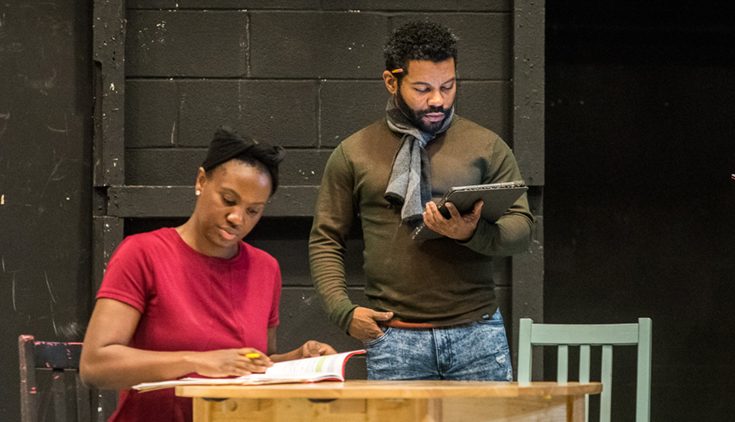At a meeting in late August, members of the Rivanna Water and Sewer Authority’s board of directors voted to add $7 million to its budget to install part of a controversial water pipeline in Albemarle, even though just a month before, they said they had no plans to start building it.
Critics say the $7 million, one-mile pipeline is political and a “boondoggle.”
It’s part of an $82-million, nine-mile pipeline that will connect the South Fork Rivanna and Ragged Mountain reservoirs. The one-mile section that the RWSA now has the funds to build will run through the Birdwood Golf Course, which will be closed for reconstruction.
“I did say there was no plan [to build the pipeline], but that was really to the nine-mile section of pipe with exception to this one-mile section of pipe,” says RWSA Executive Director Bill Mawyer. “Maybe I should have put an asterisk in there [and said] except for the Birdwood section.”
Dede Smith, a former city councilor who has a long history of opposing the pipeline, says building at Birdwood now because it’s being renovated—and assuming it won’t be renovated again in the next 50 years—is “ludicrous.”
The pipeline was included in a community water supply plan created between 2002 and 2012, which deemed the project necessary to provide enough water for the community in the coming years. City Council has instructed that construction on the pipeline begin between 2027 and 2040 to meet those demands—but its necessity has been hotly debated.
“This isn’t about Birdwood, or the necessity of the pipeline, it’s political,” Smith said in an email to the board the day before it voted. “And the decision to spend $7 million turns to potentially illegal.”
She asked board members to consider what the city and Albemarle County Service Authority could do with $7 million to upgrade their infrastructure and further reduce water demand—the reason, she says, there’s no need for the pipeline.
In-depth research by Rich Gullick—a former RWSA director of operations, who resigned from his job in protest in February—concludes that actual water demand has been far less than what the authority projected, and the pipeline won’t be needed until at least 2048—or 2062, if the Ragged Mountain Reservoir water level is raised an additional 12 feet first, which Mawyer says can’t happen unless demand increases significantly.
According to Mawyer, the current water demand in the local service area is about 9 million gallons per day, compared to a supply of 16 million gallons per day.
Citing another study, he says the community will need more water by 2040—compared to Gullick’s calculation of two decades later—and the RWSA has commissioned a new study to reevaluate the projected demand.
Despite it maintaining that it won’t decide when to build the full pipeline until those results come in next year, the board plans to proceed in November with the $7 million, one-mile chunk of pipeline, which will stay empty.
“We’ll plug the ends and leave it in that condition,” says Mawyer.
Gullick calls it a “boondoggle,” and says it’s clear why the RWSA is rushing to build the first mile of the water line.
“All this is is a ploy to get the pipe started so that they can use it as an excuse to finish it,” he says. “They’re showing their hand, and they clearly don’t care what the new data says.”
The RWSA has claimed the pipeline won’t degrade while it sits unused and unfilled, possibly for decades, but Gullick says he doesn’t buy it.
“Water in the soil will be more corrosive than the water in the pipe,” he says. “What doesn’t degrade over time? It’s metal.”
Gullick was unable to attend the August 28 meeting where the vote to build at Birdwood was held. So was Smith.
“To selectively tax urban water rate payers $7 million for a project that has been both discredited by current data and politically motivated (worse yet by those who will not pay) is scandalous at best,” Smith said in her letter.
Smith and Gullick say Liz Palmer, a board member and Albemarle County supervisor, has been a main advocate for the pipeline, though her constituents in the Samuel Miller district don’t pay urban water bills. County rate payers will pay 80 percent, and city ratepayers will pay the remaining 20 percent.
Palmer counters that she has many constituents on public water, particularly south of I-64 and west of Fifth Street in developments such as Redfields and the many apartment complexes in the area. Once the pipeline is built, the RWSA will close the nearly 100-year-old Sugar Hollow line, and the Moormans River will “return to a more natural flow,” as required by a Department of Environment Quality permit, she says in an email.
Smith also says the most surprising vote came from Gary O’Connell, the executive director of the Albemarle County Service Authority and former city manager, “whose only role on that board is to protect the interests of county water rate payers. …And it is the county water rate payer who will be hurt the most when their rates go up to pay 80 percent of the cost of this pipeline to nowhere.”
O’Connell says the ACSA board has consistently supported the water supply plan, and within the agreement, its customers are also allocated 80 percent of the capacity of the new pipeline.
He says the ACSA is very mindful of its rates, and the average residential bill is about 22 percent less than that of a comparable city customer. Adds O’Connell, “Our area is growing, so we need to be focused on a growing water system.”




